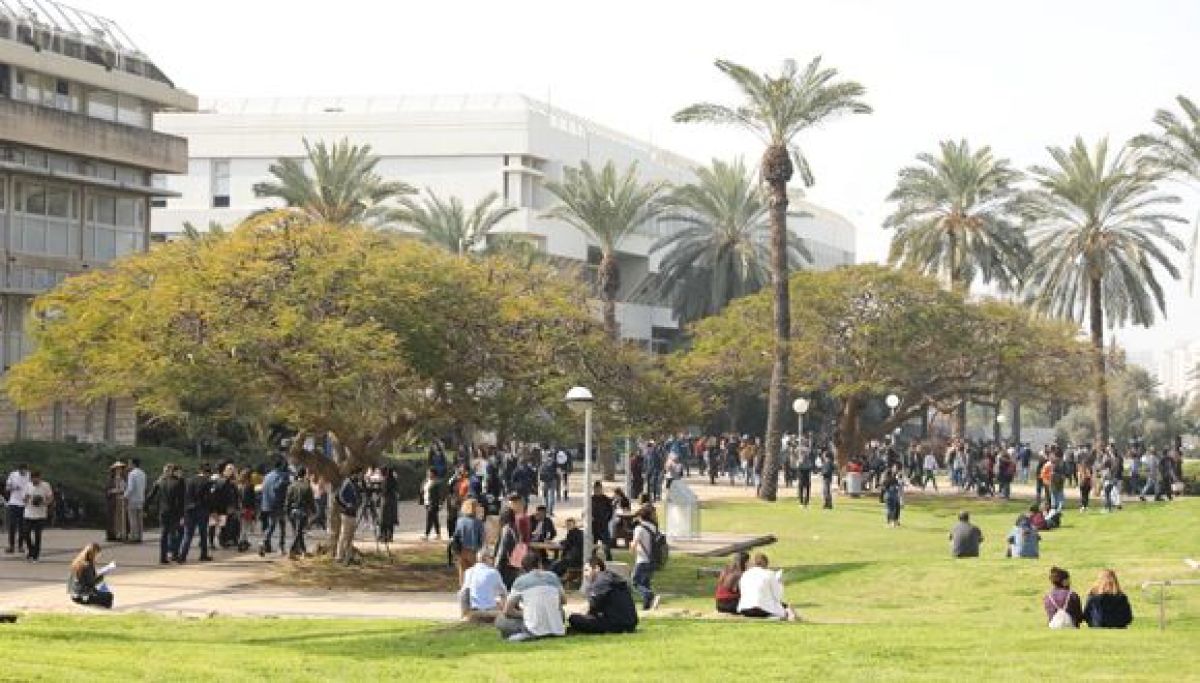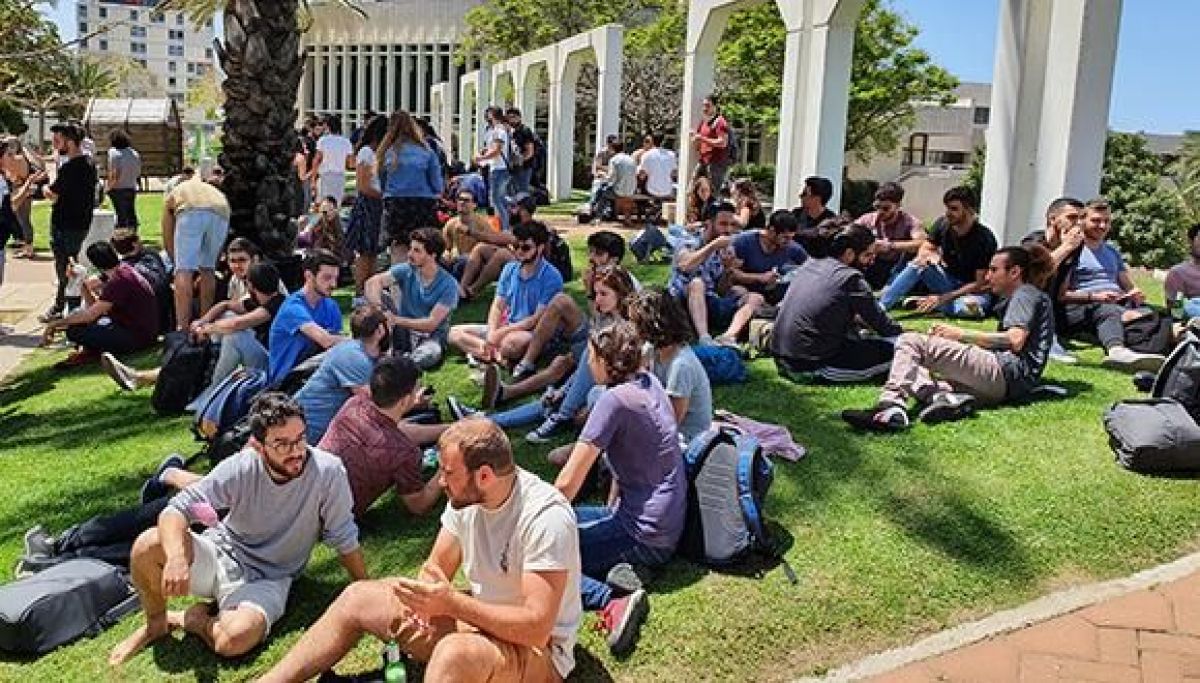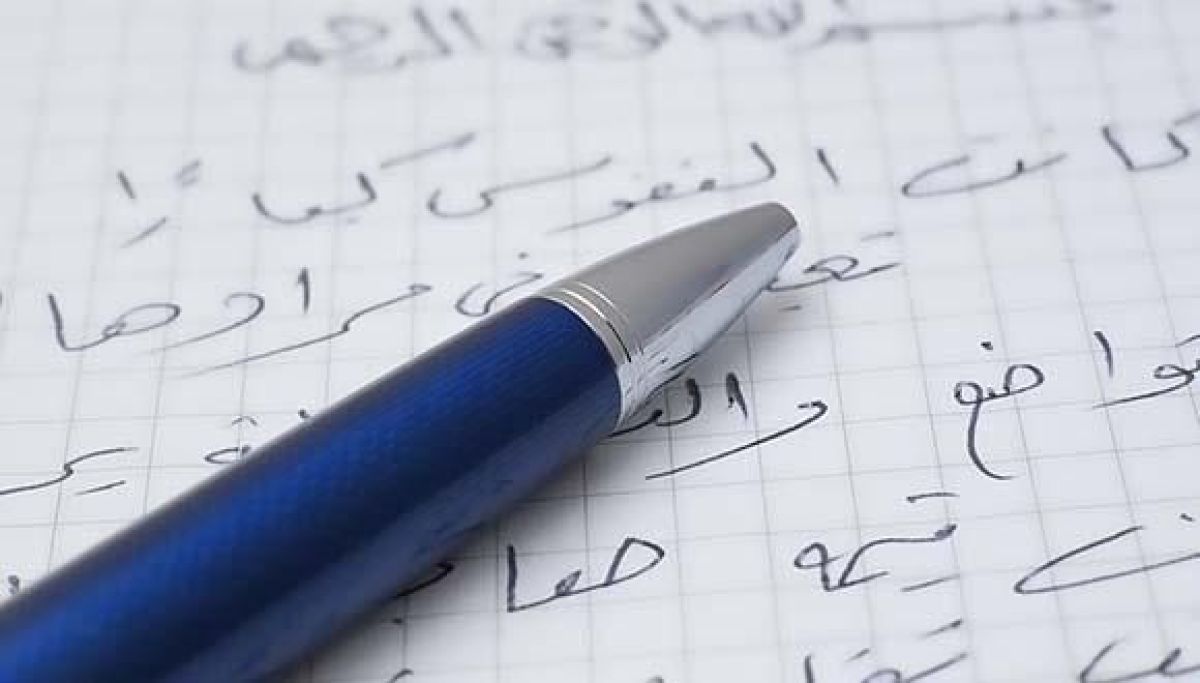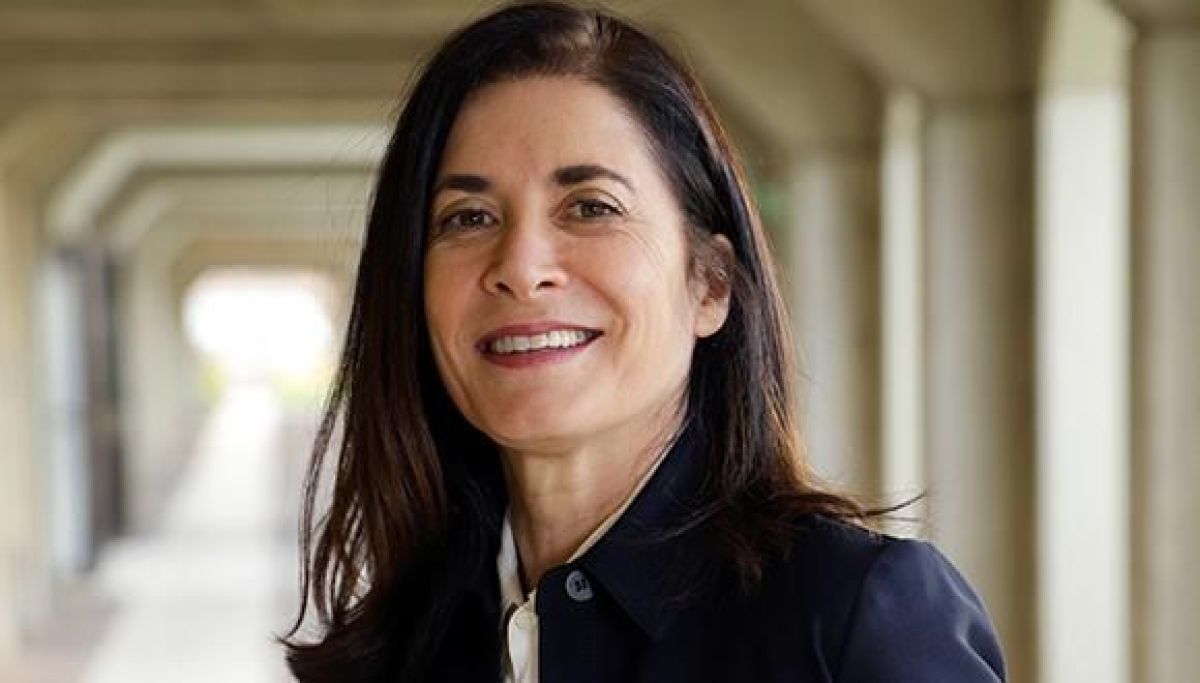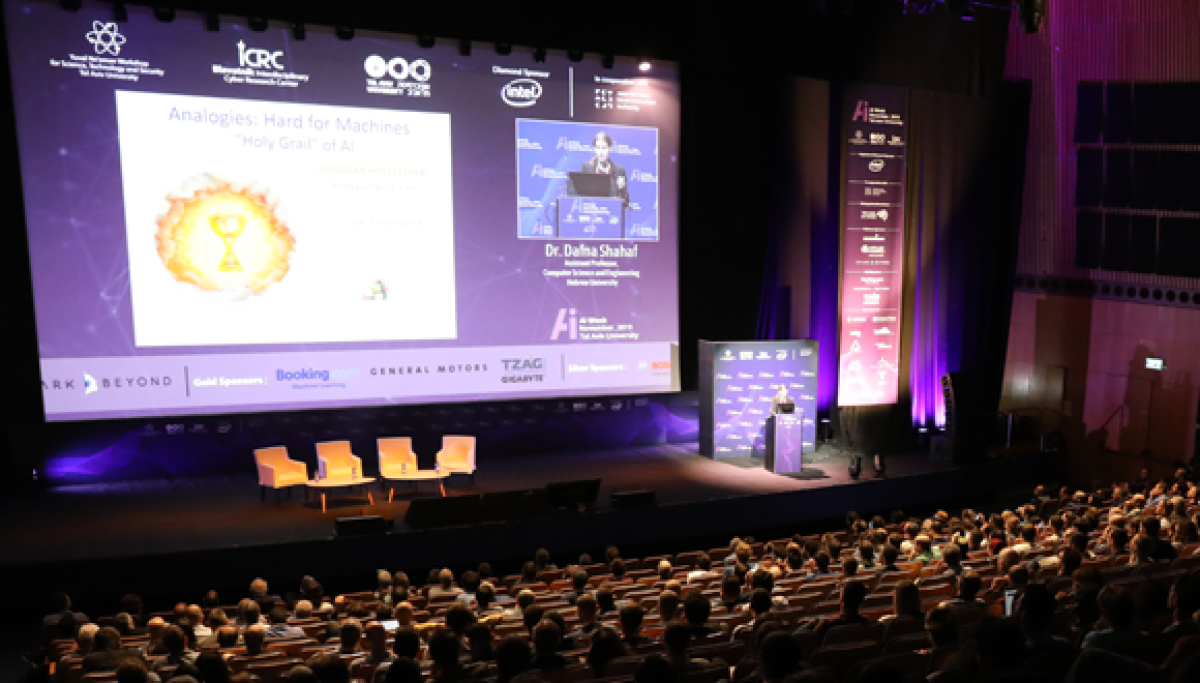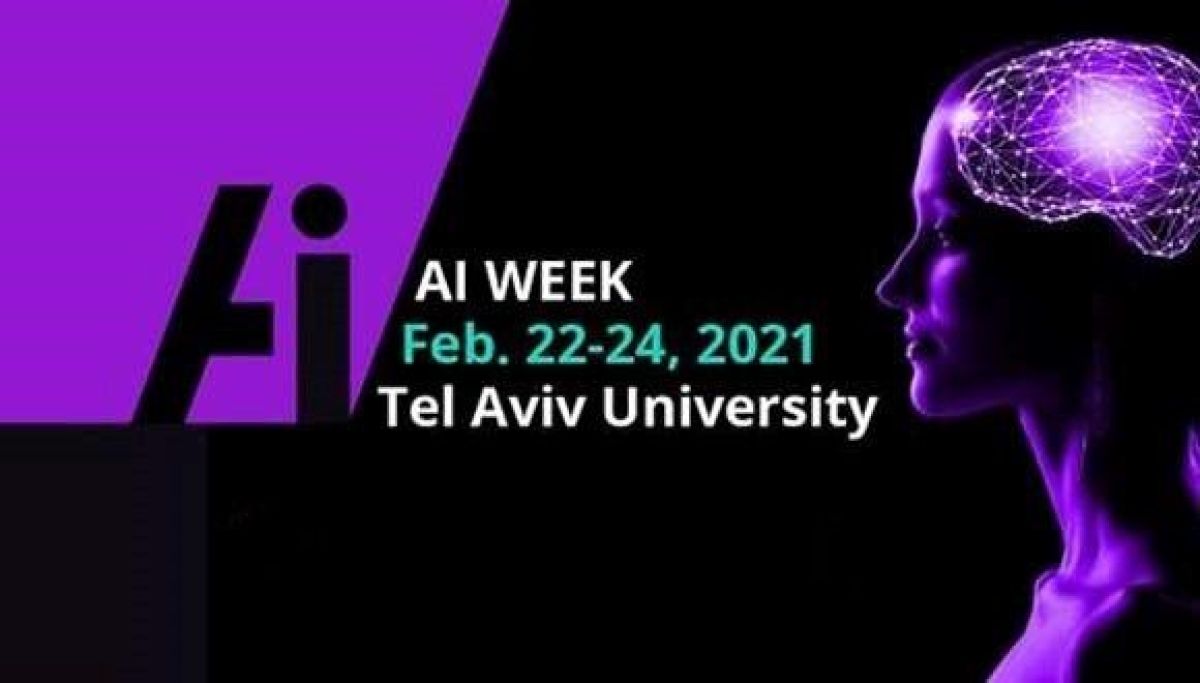Tag: Tel Aviv University
Standing With The Tel Aviv University Community
Message from the President of Tel Aviv University, Prof. Ariel Porat –
Show Me Your Playlist And I’ll Tell You Who You Are
Could you be inadvertently channeling your inner Beyonce or Eminem?
Promoting Equality on Campus
Striving for a Diverse & Equal Campus
Tel Aviv University has thus adopted in practice the recommendations of the Diversity Committee appointed by Prof. Ariel Porat, President of TAU, to examine the issue. The Committee, headed by Prof. Sigal Alon, recommended, inter alia, that the new unit outline a comprehensive university policy, set goals, and help senior TAU office holders promote equality and diversity in the areas under their responsibility. The Committee report states: “To solve complex social problems, discover the next scientific breakthrough, and reach new heights of artistic expression, we must allow diverse ideas, approaches, perspectives, and experiences. Such diversity stimulates new research POVs, analytical methods, discoveries, and solutions.” Similarly, campus diversity creates opportunities for interactions among students and faculty members coming from different backgrounds and expands tolerance towards a broad range of perspectives. A diverse campus is itself an edifying model as it prepares students for better citizenship and leadership in a democracy striving for an ideal society free of racism, fear of the other, and stereotyping. TAU President Prof. Ariel Porat: “To strive for equality and diversity on the campus is not only a social objective of the highest importance. A diverse academic faculty ensures a higher academic level for the university and its units; a diverse student body makes the experience of studying at the campus more meaningful; and a diverse administration provides the campus community with the sense that the university belongs to everyone regardless of gender, ethnicity, or nationality. I’m proud that Prof. Neta Ziv responded favorably to my request to assume the position of establishing the new Commission. Anyone who knows Neta knows that she is both a fully ethical individual and someone who gets things done, a rare combination of traits. For many years, she headed the Law Faculty’s legal clinics and made them a source of pride for the Faculty and University as a whole, nationally and internationally.” Prof. Neta Ziv notes that the Commission she will lead will operate jointly with existing units to expand programs that have been implemented in recent years, particularly for first-generation university students and students with disabilities, the integration of Arabs and other groups in the administrative staff, and increasing the number of women and Arabs on the academic faculty at all levels. Prof. Ziv: “I’m greatly honored to have been asked to head the formation of the new unit and work on issues I have studied, taught, and been active in for more than thirty years. I believe that a diverse, equal campus is critical for achieving the academic excellence we strive for. But this is also an ethical matter. As a body that relies on public and community resources, the University is obligated to reflect the diversity of the Israeli public at large and become a sphere where every group enjoys a sense of belonging in an equal and respectful manner.”“Arabic for Beginners” – TAU’s Most Popular Course“
With hundreds on waiting lists.
Two and a half hours was the time it took for a sizeable number of people – as many as 907 – to enroll in TAU’s “Arabic for Beginners” course, from the moment its registration opened. Hundreds more asked to be added to the waiting list.Huge Demand
“Arabic for Beginners” has been offered by the Department of Arabic and Islamic Studies for many years. Each year, several dozen students interested in the Arabic language and Islamic culture have enrolled. An online version of the course has now been developed and TAU’s President, Prof. Ariel Porat, made the decision to open the course, free of charge for every employee and student at the University. The decision reflects a conviction that every citizen in Israel should have a basic command of the Arabic language, and recognizing the special status of the Arabic language on campus. Of the enrollees, 60% are students, 20% members of the university’s administrative staff and 20% are from the academic faculty. The demand for the course is university wide, with enrollees belonging to all faculties and fields, inluding: chemistry, medicine, theater, computer science, literature, biology, and more. Due to the high demand, TAU’s management and the Humanities Faculty Management made the decision to expand the project and open up additional groups. The course comprises the Arabic alphabet, a vocabulary of about 200 words, declensions, and expressions in spoken Arabic, and an introductory lecture on the foundations of Islam and religious holidays. Prof. Uriya Shavit, Head of the Department of Arabic and Islamic Studies and the initiator of the course, comments that, “There is an across-the-board agreement in Israeli society that Arabic studies should be promoted. The huge demand is a pleasant surprise indicating a welcomed and in-depth change in the attitude to the language.”Add ‘Zoom w. Dubai University’ to Your Calendar
TAU students welcome to join week of activities and getting to know our friends at UD.
Israel and the UAE have been inching toward normalization in recent years. The historic, US-brokered peace deal that was reached between the countries in September 2020 leads the way for our countries to establish normal relations, including academic exchange. TAU quickly recognized this as a window of opportunity and we are excited to share that the very first “University of Dubai and Tel Aviv University Collaboration Week” is about to take place, and welcome all TAU students to join the event.By Students & For Students
When Ido Montaniez, Head of Culture, Sports and Foreign Affairs at the TAU Student Union heard that fellow student, Oleg Ben-Avi, was in Dubai, he swiftly coordinated for Oleg to meet with the President of Dubai University’s student union, their student council advisor, as well as the head of Dubai University’s gaming club. Oleg became the first student from TAU to meet with students from the University of Dubai. Since that momentous meeting, a new and exciting relationship has evolved between students from both universities. Ido kept in touch with his contacts at UD, and already during their first meeting the idea was brought up: to organize a full week of virtual activities for students of the University of Dubai and TAU to celebrate the newfound connection between our universities, building on the relationship formed and to exchange knowledge. Subsequently, on the TAU side, Ido and Orit Coty, Marketing Director of TAU International, have been preparing the first initiative ever to be organized between TAU and an academic institution in Dubai, by students and for students. UD President Eesa Mohammed Bastaki, Ph.D is expected to make a statement at the event, as will our own TAU President Prof. Ariel Porat. The event has also opened for engagement between researchers from both universities, as some of the sessions will be co-presented by scholars from both sides. Prof. Hayit Greenspan from TAU’s Department of Biomedical Engineering will be presenting in a session on Artificial Intelligence and its Applications: Space and Medical Fields and Prof. Danny Ben-Shahar from the Coller school of Management will be giving an overview of the Israeli economy.What’s Planned?
The sessions have been curated to offer something to students of all fields: March 21, – An Overview of the UAE and Israel Economies (14:00-15:00) – Dr. Genewew Bekele from the University of Dubai and Prof. Danny Ben-Shahar from Tel Aviv University give an overview of our countries’ economies. More details here and register on Zoom here. March 21 – Israelis Meet Emirates (19:00) – A stimulating cultural exchange activity including a joint panel discussing the Emirati and Israeli character; fun facts about UAE and Israel; “a day in the life” with videos, and an open discussion. More details here and register on Zoom here. March 22 – Artificial Intelligence and its Applications: Space and Medical Fields (16:00-17:00) – Dr. Alavikunhu Panthakkan from the University of Dubai and Prof. Hayit Greenspan from Tel Aviv University will lead this super interesting IT-Engineering session. More details here and register on Zoom here. March 24 – Environmental Day (19:00) – Fair trade and fashion, the animal industry and tree planting benefits and more will be discussed during this session. More details here and register on Zoom here. March 25 – FIFA Competition (19:00) – What better way to end our collaboration week than a FIFA match on PlayStation, Tel Aviv against Dubai? Click here to learn more and register.What’s Next?
According to Ido, this will be the first time that UD cooperates with an Israeli institution, and they are now looking into sending a delegation to visit TAU campus this summer. Who knows, perhaps we will soon be able to welcome our first UAE exchange students here on TAU campus as well? The ‘University of Dubai and Tel Aviv University Collaboration Week’ is beyond doubt a brilliant way to embark on what we hope will be the beginning of a productive and lasting relationship between our universities. Israel and the UAE have been inching toward normalization in recent years. The historic, US-brokered peace deal that was reached between the countries in September 2020 leads the way for our countries to establish normal relations, including academic exchange. TAU quickly recognized this as a window of opportunity and we are excited to share that the very first “University of Dubai and Tel Aviv University Collaboration Week” is about to take place, and welcome all TAU students to join the event.By Students & For Students
When Ido Montaniez, Head of Culture, Sports and Foreign Affairs at the TAU Student Union heard that fellow student, Oleg Ben-Avi, was in Dubai, he swiftly coordinated for Oleg to meet with the President of Dubai University’s student union, their student council advisor, as well as the head of Dubai University’s gaming club. Oleg became the first student from TAU to meet with students from the University of Dubai. Since that momentous meeting, a new and exciting relationship has evolved between students from both universities. Ido kept in touch with his contacts at UD, and already during their first meeting the idea was brought up: to organize a full week of virtual activities for students of the University of Dubai and TAU to celebrate the newfound connection between our universities, building on the relationship formed and to exchange knowledge. Subsequently, on the TAU side, Ido and Orit Coty, Marketing Director of TAU International, have been preparing the first initiative ever to be organized between TAU and an academic institution in Dubai, by students and for students. UD President Eesa Mohammed Bastaki, Ph.D is expected to make a statement at the event, as will our own TAU President Prof. Ariel Porat. The event has also opened for engagement between researchers from both universities, as some of the sessions will be co-presented by scholars from both sides. Prof. Hayit Greenspan from TAU’s Department of Biomedical Engineering will be presenting in a session on Artificial Intelligence and its Applications: Space and Medical Fields and Prof. Danny Ben-Shahar from the Coller school of Management will be giving an overview of the Israeli economy.What’s Planned?
The sessions have been curated to offer something to students of all fields: March 21, – An Overview of the UAE and Israel Economies (14:00-15:00) – Dr. Genewew Bekele from the University of Dubai and Prof. Danny Ben-Shahar from Tel Aviv University give an overview of our countries’ economies. More details here and register on Zoom here. March 21 – Israelis Meet Emirates (19:00) – A stimulating cultural exchange activity including a joint panel discussing the Emirati and Israeli character; fun facts about UAE and Israel; “a day in the life” with videos, and an open discussion. More details here and register on Zoom here. March 22 – Artificial Intelligence and its Applications: Space and Medical Fields (16:00-17:00) – Dr. Alavikunhu Panthakkan from the University of Dubai and Prof. Hayit Greenspan from Tel Aviv University will lead this super interesting IT-Engineering session. More details here and register on Zoom here. March 24 – Environmental Day (19:00) – Fair trade and fashion, the animal industry and tree planting benefits and more will be discussed during this session. More details here and register on Zoom here. March 25 – FIFA Competition (19:00) – What better way to end our collaboration week than a FIFA match on PlayStation, Tel Aviv against Dubai? Click here to learn more and register.What’s Next?
According to Ido, this will be the first time that UD cooperates with an Israeli institution, and they are now looking into sending a delegation to visit TAU campus this summer. Who knows, perhaps we will soon be able to welcome our first UAE exchange students here on TAU campus as well? The ‘University of Dubai and Tel Aviv University Collaboration Week’ is beyond doubt a brilliant way to embark on what we hope will be the beginning of a productive and lasting relationship between our universities.Dafna Meitar-Nechmad Tapped as Chair of TAU’s Board of Governors
A triple alumna and long-time benefactor of TAU, she will be first woman in role.
Last Wednesday, Tel Aviv University’s Search Committee unanimously recommended the appointment of Dafna Meitar-Nechmad as the next Chair of the TAU Board of Governors.
After serving for three years as Co-Chair of the TAU Global Campaign, Meitar-Nechmad will replace Prof. Jacob A. Frenkel, who will be completing two four-year terms as Chair of the Board of Governors at the next Board of Governors meeting. Her appointment is subject to the Board of Governors’ ratification.
This new appointment follows a series of eleven women appointed to leading positions at TAU over the past year, including VP for International Academic Relations, and the Deans of the Faculties of Exact Sciences, Humanities and Innovative Learning.
Meitar-Nechmad is an alumna of TAU and former partner in the Meitar Law Offices. No longer a practicing lawyer, she is a social investor with extensive philanthropic experience. Among her many public roles, she serves on the Boards of JFN – Jewish Funders Network and the Metropolitan Opera of New York, and heads the Zvi and Ofra Meitar Family Fund, which supports a wide range of cultural and educational organizations and projects both in Israel and overseas, with TAU as its major beneficiary. Meitar-Nechmad and her family founded the Zvi Meitar Center for Advanced Legal Studies at TAU’s Buchmann Faculty of Law. In addition, Meitar-Nechmad is a founding member of the Institute for Law and Philanthropy, also at TAU’s Faculty of Law, which researches and promotes philanthropy in Israel, aiming to advance justice and equality in Israeli society and serves on its Management Committees. She is also a member of Committed to Give, an initiative for promoting philanthropy in Israel.
The Search Committee was headed by Prof. Itamar Rabinovich, former President of Tel Aviv University. In its recommendation, the committee members noted that they had been greatly impressed by Meitar-Nechmad’s leadership capabilities, her record as a leader of TAU’s Global Campaign, her extensive experience in the world of philanthropy and fundraising, and her commitment and dedication to the advancement of Tel Aviv University.
TAU’s Board of Governors holds supervisory and control functions and is mandated to help the University raise funds for further development.
Dafna Meitar-Nechmad thanked the Search Committee for recommending her appointment and said: “As a woman, a social investor and an alumna of TAU, it will be a great honor and privilege for me to head its Board of Governors. The past decade has seen substantial development at TAU, in research, education and contribution to the community, and I am certain that together we can keep up this momentum, expand the sources of funding, and open TAU’s gates to new target populations from both Israel and abroad.”
TAU President Prof. Ariel Porat congratulated Dafna Meitar-Nechmad and said: “I am very happy that the Search Committee recommended Dafna Meitar-Nechmad for such an important role at our University. Dafna has a great deal of experience in social and philanthropic activities and I have no doubt that with her support we will be able to continue the advancement of TAU’s excellence in many areas. Having seen Dafna’s activities successfully benefit TAU, and recognizing her social commitment and inspiring personality, I look forward to working together for the further consolidation of TAU’s academic, social and economic standing and its contribution to society.”
TAU Launches Israel’s First Center for AI and Data Science
Center to take TAU and Israel to forefront of the global artificial intelligence revolution.
Tel Aviv University launched the new, interdisciplinary Center for Artificial Intelligence and Data Science today, headed by Prof. Meir Feder of the Fleischman Faculty of Engineering.
The Center will enhance basic science in these fields, encourage cross-disciplinary research that uses the most advanced methods of artificial intelligence (AI) and data science (DS), and train a new generation of researchers and industrialists who will take Israel to the forefront of the global AI revolution in the coming years. Moreover, it will lay the groundwork for the rapidly growing field of quantum computing. The launch event took place during TAU’s annual AI Week.
Penetrating All Areas of Life
TAU President, Prof. Ariel Porat: “The establishment of the AI Center is one more step toward implementing TAU’s vision for advancing groundbreaking, interdisciplinary research that brings together the university’s finest researchers, the high-tech industry and the community. Not long ago we launched the interdisciplinary Center for Combating Pandemics and over the coming year we intend to establish more such centers, such as one for climate change and another for healthy aging. TAU’s great advantage is its enormous range of disciplines. Our new interdisciplinary centers will further extend the scope of research, combining different disciplines, from engineering and computer science through life sciences, medicine and psychology, to economics, management, humanities, arts and law.”
Prof. Meir Feder emphasized that “the AI revolution is expected to impact our way of life in every aspect, from drug development and data-based personalized medicine, to defense and security systems, financial systems, scientific discoveries, robotics, autonomous systems and social issues. In addition, it is very important to train human capital in this area, and therefore the Center will provide all TAU students with basic AI education.” According to Prof. Feder, the Center will include hundreds of researchers, and will promote collaborations among scientists all over campus. It will also foster collaborations with the defense and other industries, the public sector, and leading universities and research institutions around the world.
Prof. Feder added that next month the AI Center will launch its collaboration with Google Israel as part of the company’s “AI for Social Good” program.
Major Gen. (Ret.) Prof. Isaac Ben-Israel, Head of TAU’s Yuval Ne’eman Workshop for Science, Technology and Security and Blavatnik Interdisciplinary Cyber Research Center, and Prof. Eviatar Matania, also of Tel Aviv University, are the visionaries behind AI Week and the university-wide AI initiative.
Prof. Ben–Israel stressed that “the applications of intelligent systems have far-reaching implications for practically every area of modern life, including security, medicine, transportation, automation, retail, customer service and numerous others. Various AI and machine learning algorithms, together with the enormous increase in computational power, are already beginning to penetrate all areas of our lives, and understanding them requires proficiency not only in the obvious technological disciplines such as computer science, mathematics and engineering, but also in the social, legal, business and even philosophical spheres.”
Israel’s Premier Artificial Intelligence Event is Back!
TAU’s AI Week brings together top Israeli and global experts in the field for three fascinating days, Feb 22-24.
It is time for TAU’s annual International Conference on Artificial Intelligence (AI), continuing our tradition of gathering prominent figures who address the most significant issues in the field with technology experts, industry executives, and government representatives.
Combining technological leadership, applied AI and cutting-edge research, AI Week will highlight the way in which AI technology is revolutionizing business strategy, policy and future development. Discussions will focus on formulating national plans for the advancement of AI, the use of AI in medicine and implementing AI to advance the economy in a post corona world.
Speakers include: Prof. Isaac Ben Israel (Head of the Yuval Ne’eman Workshop on Science, Technology and Security, Head of the Cyber Center at Tel Aviv University), Sumaya AlHajeri (Head of Governance and Data at the Office of the Minister of Artificial Intelligence, UAE), Sana Khareghani (Head of UK Office for Artificial Intelligence), Carme Artigas (Secretary of State for Digitalization and Artificial Intelligence, Spain), Dr. Eviatar Matania (Former Director General, Israel National Cyber Directorate) and more.
The conference program can be viewed here.
Participation is free of charge, but requires registration in advance. Please register here.
Ready for Launch!
TAU’s first nanosatellite ready to be launched into space.
Watch it Launch
The moment we’ve all been waiting for is now only days away: TAU’s first nanosatellite, TAU SAT1 is about to be launched into space. This exciting journey has been followed closely by many on the university’s social media, and we are happy to share that the launch itself can be watched live on Facebook on February 20 at 7:36 PM.
The development of TAU-SAT1 has been followed by many on the university’s social media
Small Satellite – a Big Step
“This is a nanosatellite, or miniature satellite, of the ‘CubeSat’ variety,” explains Dr. Ofer Amrani, head of Tel Aviv University’s miniature satellite lab. “The satellite’s dimensions are 10 by 10 by 30 cm, the size of a shoebox. It weighs less than 2.5 kg. TAU-SAT1 is the first nanosatellite designed, built and tested independently in academia in Israel.”
The nanosatellite was devised, developed, assembled, and tested at the new Nanosatellite Center, an interdisciplinary endeavor of The Iby and Aladar Fleischman Faculty of Engineering, Raymond & Beverly Sackler Faculty of Exact Sciences and the Porter School of the Environment and Earth Sciences. The entire process has taken two years – an achievement that would not have been possible without the involvement of many people: the university administration, who supported the project and the setting up of the infrastructure on campus, Prof. Yossi Rosenwaks, Dean of the Faculty of Engineering; Professors Sivan Toledo and Haim Suchowski from the Raymond & Beverly Sackler Faculty of Exact Sciences; Prof. Colin Price, researcher and lecturer in Athmospheric Sciences in the School of Geosciences and Head of the Porter School of the Environment and Earth Sciences, and, most importantly, the project team that dealt with R&D around the clock: Elad Sagi, Dolev Bashi, Tomer Nahum, Idan Finkelstein, Dr. Diana Laufer, Eitan Shlisel, Eran Levin, David Greenberg, Sharon Mishal, and Orly Blumberg.
Space Weather
TAU-SAT1 is a research satellite and will be conducting several experiments while in orbit. Among other things, it will measure cosmic radiation in space. “We know that that there are high-energy particles moving through space that originate from cosmic radiation,” says Dr. Meir Ariel, director of the university’s Nanosatellite Center. “Our scientific task is to monitor this radiation, and to measure the flux of these particles and their products. Space is a hostile environment, not only for humans but also for electronic systems. When these particles hit astronauts or electronic equipment in space, they can cause significant damage. The scientific information collected by our satellite will make it possible to design means of protection for astronauts and space systems. To this end, we incorporated several experiments into the satellite, which were developed by the Space Environment Department at the Soreq Nuclear Research Center.”
Like the weather on Earth, there is also weather in Space. This weather is linked to storms that occur on the surface of our Sun, and impact the environment around the Earth. Prof. Colin Price researches and lectures in Atmospheric Sciences and explains that “When there are storms on the Sun, highly energetic particles are fired at the Earth at speeds of hundreds of kilometers per second, and when these energetic particles hit the Earth’s atmosphere, they can cause lots of damage to satellites, spacecraft and even astronauts.” TAUSAT1 will be studying these storms and their impact on the atmosphere at the height of 400km above the Earth, testing the damage produced by the tiny particles. This will help understand the hostile environment satellite face due to space weather.
WATCH: TAU’s Nanosatellite Project
Satellite Station on Roof of Faculty Building
At an altitude of 400 km above sea level, the nanosatellite will orbit the earth at a dizzying speed of 27,600 km per hour, or 7.6 km per second. At this speed, the satellite will complete an orbit around the Earth every 90 minutes. “In order to collect data, we built a satellite station on the roof of the engineering building,” says Dr. Amrani. “Our station, which also serves as an amateur radio station, includes a number of antennas and an automated control system. When TAU-SAT1 passes ‘over’ the State of Israel, that is, within a few thousand kilometer radius from the ground station’s receiving range, the antennas will track the satellite’s orbit and a process of data transmission will occur between the satellite and the station. Such transmissions will take place about four times a day, with each one lasting less than 10 minutes. In addition to its scientific mission, the satellite will also serve as a space relay station for amateur radio communities around the world. In total, the satellite is expected to be active for several months, after which it will burn up in the atmosphere and return to the Earth as stardust.
TAU Joins ‘New Space’ Revolution
Launching the TAU-SAT1 nanosatellite marks TAU’s first step of joining the ‘new space’ revolution, aiming to open space up to civilians as well. The idea is that any researcher or student, from any faculty at Tel Aviv University, or outside of it, will be able to plan and launch experiments into space in the future – even without being an expert in the field.
Over the last few years, TAU has been working on establishing a Nanosatellite Center to build small “shoebox” size satellites for launch into space. “We are seeing a revolution in the field of civilian space”, explains Prof. Colin Price, one of the academic heads of the new center. “We call this ‘new space’, as opposed to the ‘old space’, where only giant companies with huge budgets and large teams of engineers could build satellites.
After undergoing pre-flight testing at the Japanese space agency JAXA, TAU-SAT1 was sent to the United States, where it “hitched a ride” on a NASA and Northrop Grumman resupply spacecraft destined for the International Space Station. At the station, this upcoming Saturday evening, a robotic arm will release TAU-SAT1 into a low-earth orbit (LEO) around the Earth, approximately 400km above the Earth.
Last inspections in the clean room. TAU SAT1


